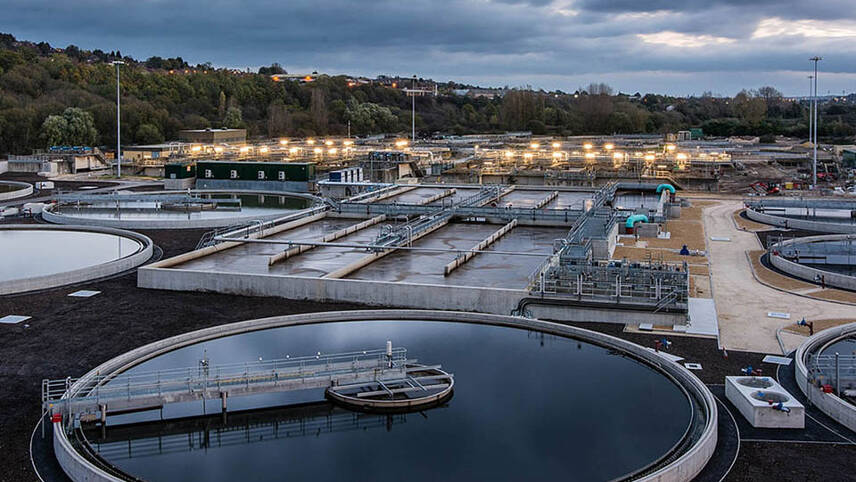
Image: Yorkshire Water
Ofwat this week announced the next winners of its ‘Water Discovery Challenge’, a multi-million-pound funding competition supporting the commercialisation of innovations suitable for water companies in England and Wales.
One of the ten new winners, Anamad, is innovating to use cold plasma to disinfect water as an alternative to traditional chlorine-based disinfection processes. Cold plasma, known colloquially as ‘lightning in a jar’, provides an electrical impulse that can disinfect water.
Researchers believe the process, which requires low energy levels to complete can also be honed to remove PFAS chemicals from water. PFAS are known as forever chemicals because they do not break down and can easily move through materials of different states in the environment, ending up in drinking water.
One 2023 study detected PFAS in the drinking water sources at 17 of England’s 18 water companies.
Similarly, Ofwat is also providing funding to Freeox at Cardiff University. This project is developing a way of replacing chlorination with hydrogen peroxide synthesis to provide a lower-energy and more efficient method of potable water disinfection.
Chief technology officer for the project, Andrew Cox, said: “Unlike chlorine production, which is energy-intensive, Freeox can be generated at point-of-use, reducing energy demand, while only creating water and oxygen byproducts- meaning there’s no chemical taste or smell. We’re excited to be upscaling and commercialising to test this game-changing technology which holds the potential to transform water treatment across the world.”
Another winning project, from the School of Chemistry at the University of St Andrews, is innovating to develop next-generation hydrogen fuel cells suitable for use at wastewater treatment sites to decarbonise processes.
The solid oxide fuel cells, project leader Dr Richard Baker told edie, can operate at high temperatures to convert chemical energy into electrical energy using hydrogen as the fuel. This process generates only water and heat as waste, no greenhouse gas emissions. Dr Baker explained that the heat is high-grade and can be captured and reused.
The water industry is primed to self-generate hydrogen using low-emissions processes. Wastewater plants already benefit from generating methane and from hosting water, which can be used for electrolysis.
Dr Baker has spent three decades working on fuel cells and has been honing his skillset for the water sector for several years thanks to funding from Scottish Water and Ofwat.
Other winners
In total, Ofwat has announced £4.5m of Water Discovery Challenge funding this week.
Ofwat’s senior director for sector performance Helen Campbell said: “This competition was about reaching new innovators from outside the sector with different approaches and new ideas, and that’s exactly what the winners are doing.
“The products and ideas recognised in this cross-sector challenge will equip water companies to better face challenges of the future – including achieving sustainability goals and meeting net zero targets – all while providing the highest-quality water for consumers.”
The other seven winners are as below:
- REVAR, led by ICMEA-UK, Costain Group and Aston University. This project generates energy from sewage sludge in a more sustainable and cost-effective way than existing approaches
- Waterhelm and AtkinsRealis. The two organisations are innovating with a new low-pressure desalination process powered using waste heat. They claim the solution could be the lowest-carbon option.
- Cranfield University. Researchers are developing a more resource-efficient phosphorus removal system for wastewater treatment plants, without the use of phosphorus which is currently commonplace.
- ACQUIRE, led by Mounce Hydrosmart. This project will use artificial intelligence to analyse drinking water quality incident reports and provide recommendations for interventions to companies, plus communications to customers.
- Lancaster University. Academics are pioneering methods for using magnetic nanocomposits for removing dissolved organic carbon and other organic contaminants at water treatment works.
- Reismac and Schur-BPH. Resimac Ltd has developed a rapid and cost-effective solution for rehabilitating rising sewer pipelines, eliminating the need for extensive excavation.
- Yorkshire Water and digiLab Solutions are using AI-enabled optimisation techniques for efficient sensor deployment and monitoring in the wastewater network.
